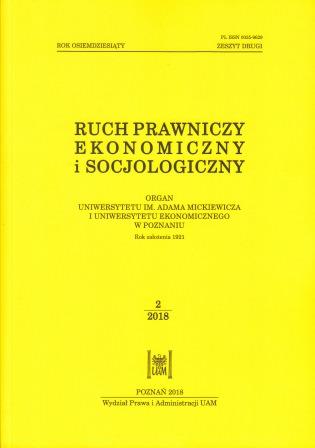ZASADA NULLUM CRIMEN SINE LEGE CERTA I JEJ OGRANICZENIA NA TLE JĘZYKA ETNICZNEGO
THE PRINCIPLE NULLUM CRIMEN SINE LEGE CERTA AND ITS LIMITATIONS ON THE GROUNDS OF AN ETHNIC LANGUAGE
Author(s): Mateusz TomczykSubject(s): Constitutional Law, Criminal Law
Published by: Uniwersytet Adama Mickiewicza
Keywords: principle nullum crimen sine lege certa; limitations; ethnic language;
Summary/Abstract: This paper is an attempt to answer the question if it is possible to achieve full unambiguity and precision of an abstract and general description of features of a prohibited act within the substantive criminal law while maintaining communicativeness and conciseness of a legal text so that it is comprehensible for all the addressees of a criminal norm. In other words, the author seeks to resolve the issue of whether it is possible to implement the nullum crimen sine lege certa principle, which requires full characterisation of the prohibited act, to an extent that is even ‘idealised.’ In this respect, the author seeks to highlight the thesis that norms of criminal law describing punishable acts are addressed to the general society and as such should be read directly and understood without the need to apply complicated rules of interpretation of a criminal norm from a criminal provision at each time, which, according to the author, constitutes an element of the nullum crimen sine lege principle referred to in Article 42(1) of the Polish Constitution. However, it turns out that achieving full unambiguity and precision, without going into too much detail in a legal provision, and at the same time maintaining communicativeness and conciseness of a legal text is not possible. The reason is that criminal provisions containing a description of features of the type of a prohibited act are the result of a compromise between unambiguity, precision, communicativeness and imperfections of the ethnic language in which they were formulated. The wording of a criminal provision is asymptotic, but the legislator should be guided by the fact that it should, as far as possible, be comprehensible to every addressee, especially the one without adequate legal training.
Journal: Ruch Prawniczy, Ekonomiczny i Socjologiczny
- Issue Year: 80/2018
- Issue No: 2
- Page Range: 101-114
- Page Count: 14
- Language: Polish

